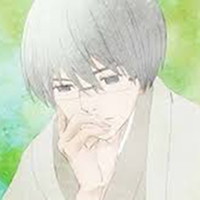|
by pragerfan November 3, 2007 We are, to a great extent, shaped by our life's experiences. I've never bought into the victimhood of circumstance and I hold that it is always possible — in fact it is a moral obligation — to rise above our socio-economic background to make correct moral choices. But we are fooling ourselves if we think that our views of the issues are not shaped by how we were raised. This is certainly the case with Halloween. I've always considered my most impressionable years to have been between the ages of about 6 and 11, the years that I spent with my grandparents. Being raised by the World War II generation (my grandfather fought Japanese fascism in the Pacific) has its benefits. One of them is that — hopefully — one has ingrained what is truly important, and what is not so important. While some fault the "greatest generation" for not passing its values to their children, the truth of the matter is that by and large the baby boomer generation was simply not receptive nor observant. Communication is a two-way street. What does this have to do with Halloween? When I grew up, Halloween was about two things. Dressing up in silly costumes, and getting as much candy from unsuspecting adults as possible. I don't remember worrying about rotting my teeth out — in any case if I did I had new set of teeth coming anyway. That was ALL that it was about. There was never any interest, or discussion, about witchcraft, demons, or the devil. The closest I ever got to a ghost was when kids put sheets over their heads and poked holes in them so as not to trip over their own feet at night going from house to house. Fast forward about 6 to 8 years. At 14 I accepted Christ as my Savior and was ostensibly "born again." Part of being a born-again Christian — especially a new one — is the overwhelming desire to (1) tell everyone about Jesus and (2) read as much Christian literature as possible. For me as a new Christian, cheesy Christian books were better than great secular works if for no other reason that one wanted to be "in the Spirit" as much as possible. As I got more into the evangelical Christian movement I did run across multiple essays on Halloween which essentially reflected the same view: that Halloween was a day of devil worship, the "high holy day" as it were of everything satanic. This seemed odd to me, who had been raised with the idea that Halloween was nothing more than costumes and candy. That was what I grew up with, and that's the way I've always viewed Halloween. In short, my grandmother was more concerned (perhaps) about rotting teeth than spiritual corruption. Her assumption must have been that whatever the origins of Halloween, I was too young to understand and too young to care. She was right on both counts. Consider the controversy which surrounds the Christmas tree. The tradition of the Christmas tree is itself supposedly rooted in pagan festivals: "In Germany and northern Europe, the practice of decorating coniferous trees originated in pagan times, when the trees were seen as phallic symbols representing the fertility of the nature gods. The practice was associated with the Winter Solstice (around December 21) which was seen as the date of the rebirth of the Sun God. Tree decoration was later adopted into Christian practice after the Church set December 25th as the birth of Christ, thereby supplanting the pagan celebration of the solstice." In the case of the Christmas tree, the church perhaps by the Holy Spirit was actually able to change the meaning of the tradition. Instead of phallic symbols and false gods, the tree has come to symbolize the Nativity of Christ. The Spirit willing, it is simply a matter of time before the church fully succeeds in adopting Halloween as well into Christian practice, the origin of Halloween finally fading into the antiquated pages of history. It is noteworthy that many people who do not observe Halloween do put up Christmas trees, yet both traditions have pagan roots. Everyone is free to believe what they want about Halloween. I for one have a secular view of the "holiday" (I don't actually consider it a holiday). Other folks believe that Halloween has negative religious overtones and connotations — more power to them. I just don't see a grave enough threat from Halloween to the moral (and spiritual) well-being of children to change my position on what Halloween is essentially about: fun, sweets, and costumes. I am far more concerned about teenagers not correctly understanding the moral difference between "thou shalt not kill" (an incorrect translation of the sixth commandment) and "thou shalt not murder," and with parents who believe their teenager smoking a cigarette is worse than their teenager cheating on an exam. |
 |